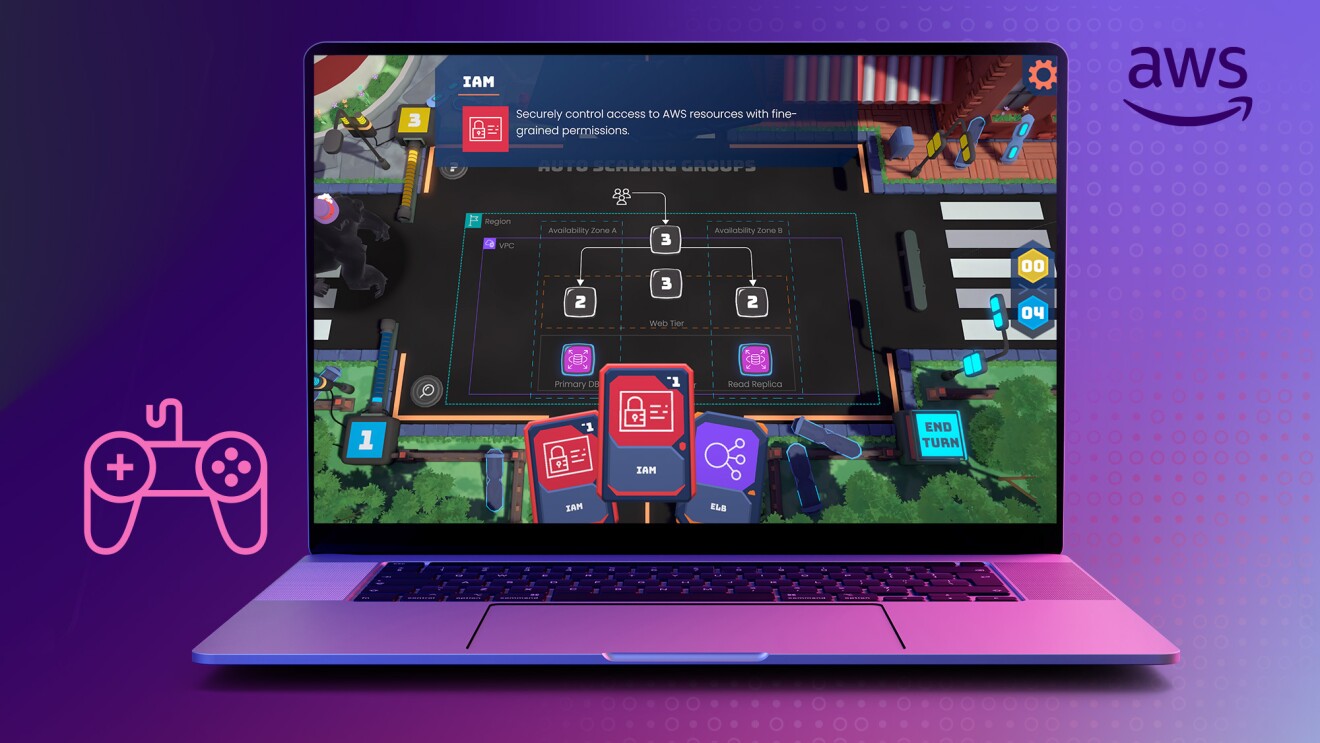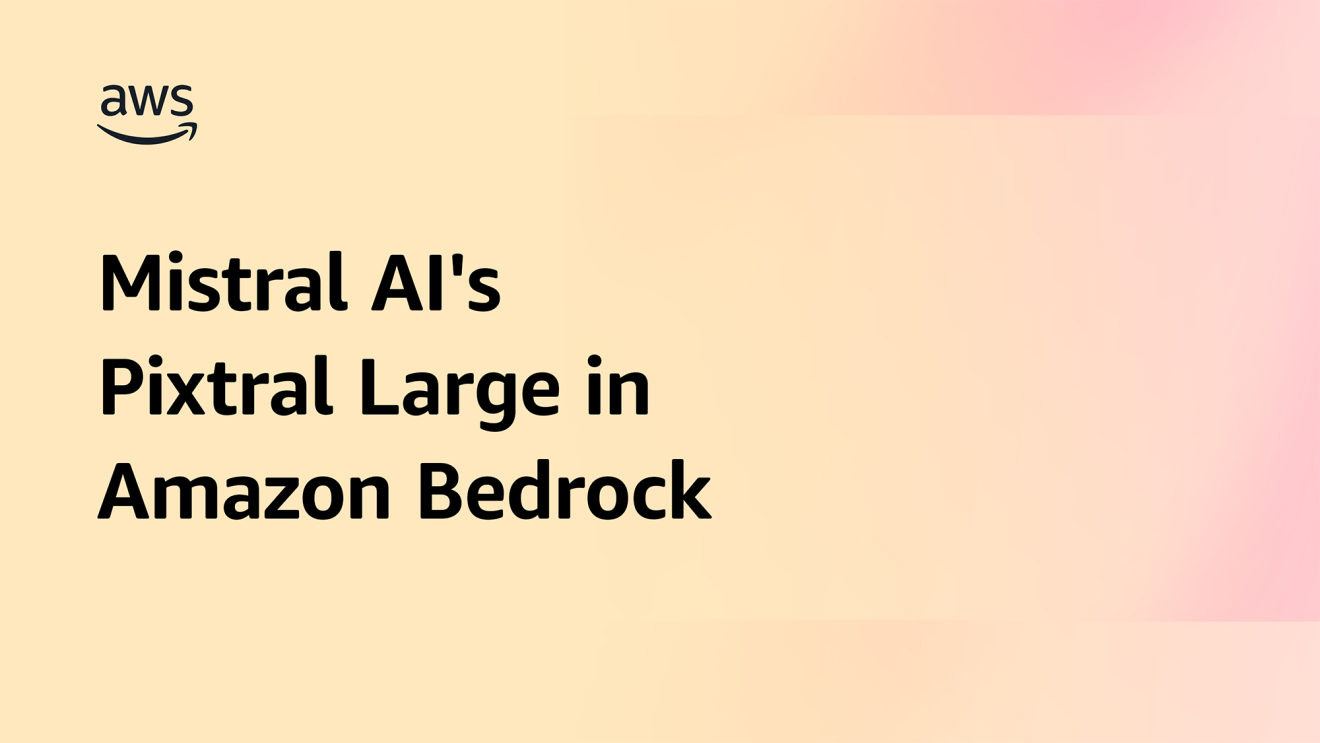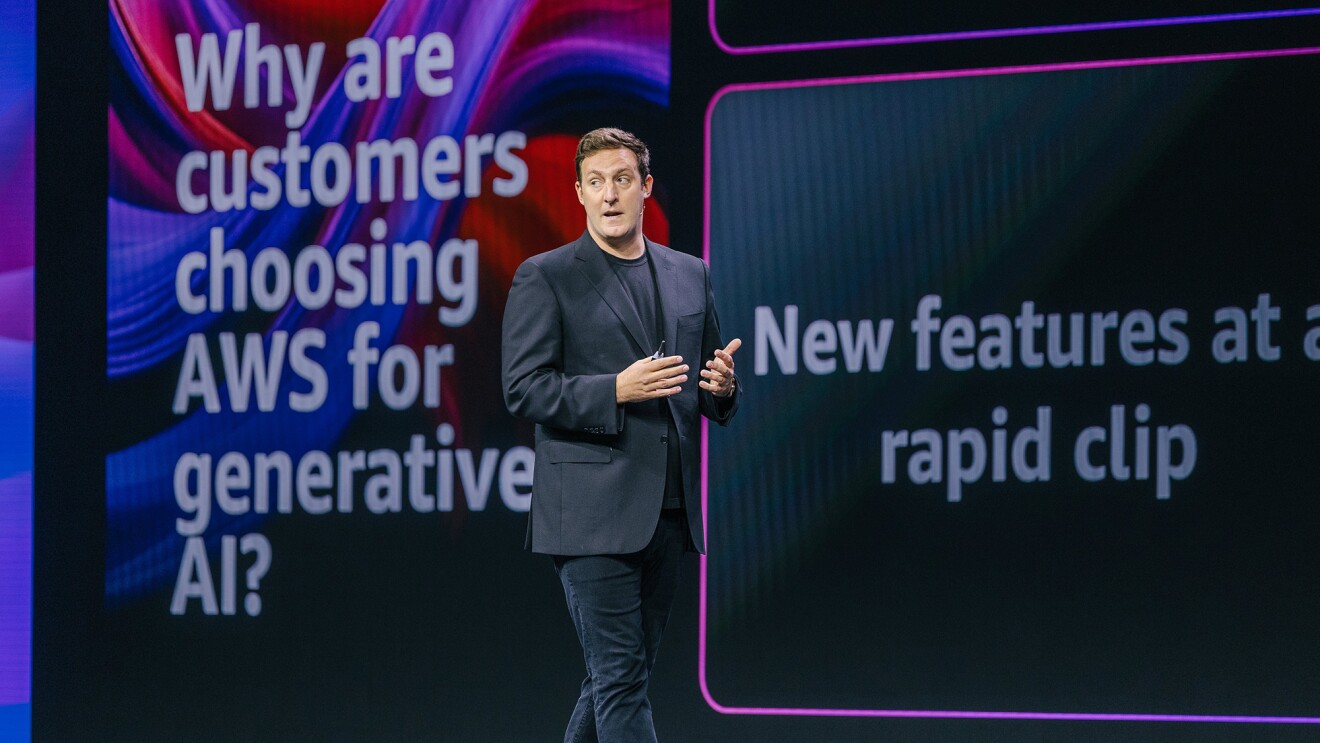 AWS’s VP for AI products, Dr. Matt Wood
AWS’s VP for AI products, Dr. Matt WoodPage overview
1. AWS App Studio lets users build applications with the help of generative AI in minutes
Big news for technical folks whose day job is not necessarily writing code (think IT project managers, data engineers, and the like). The new AWS App Studio—a generative AI-powered, low-code (meaning the code-writing is mostly done for you) application building service—is the easiest way to create secure applications that can solve business problems in minutes, instead of days or weeks.
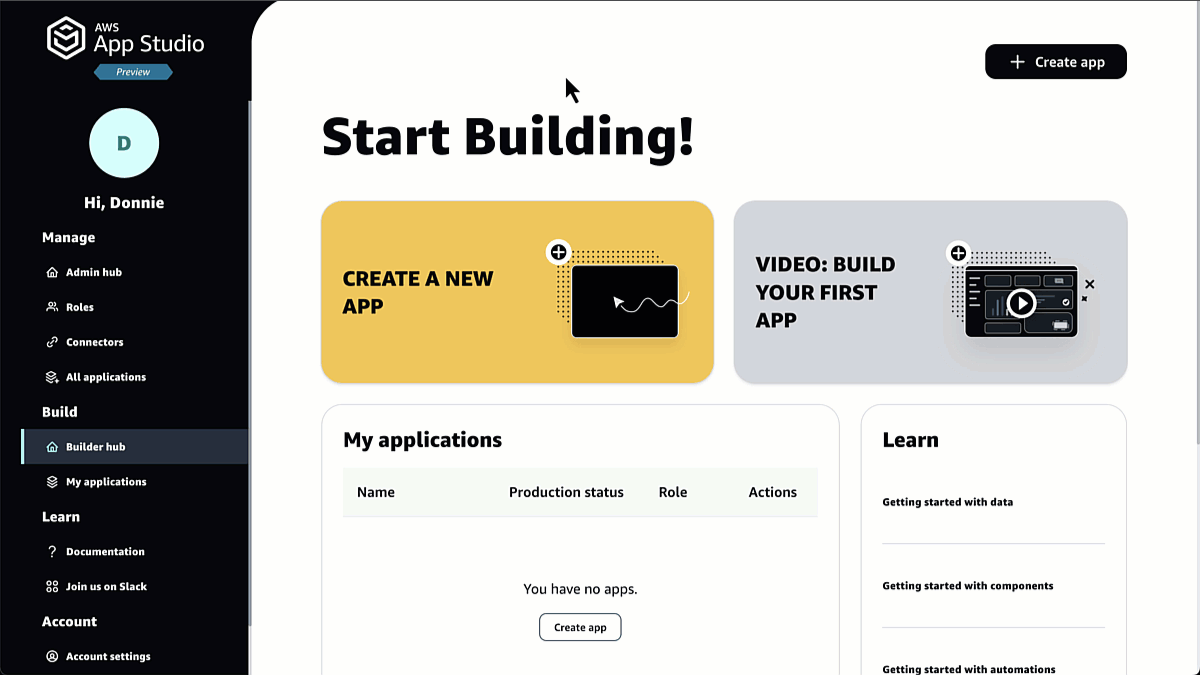
Let’s say you want a better way to track inventory. Instead of farming this out to an expensive development team, you can leverage AWS App Studio to set up and modify applications securely. To get started, users can simply describe the application they want, such as, “Build an app to review and approve invoices,” and App Studio will generate the new application, including a user interface for listing invoices, a data model for the approval records, and a system for routing those records. App Studio will automatically create mock data so users can see how their application works, and users do not have to think about the underlying code. Deployment, operations, and maintenance are handled by App Studio, and users get an application that’s secure and scalable. Learn more about AWS App Studio.
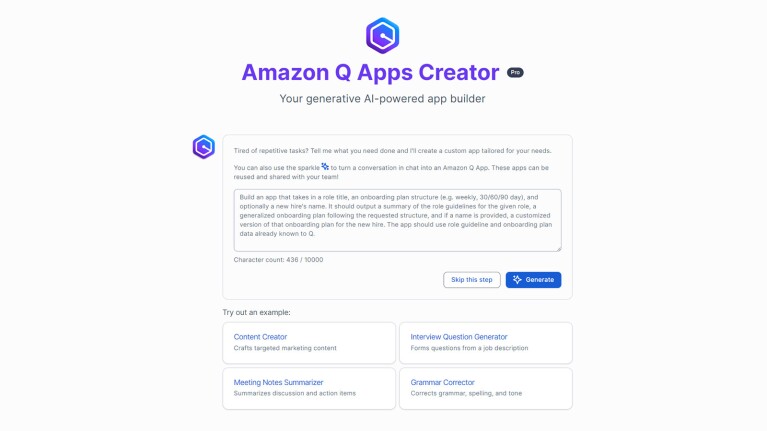
If you aren’t in a technical role, don’t worry. AWS has you covered with the general availability of Amazon Q Apps, a feature of Amazon Q Business. Amazon Q Business provides everyone with generative AI assistance for tasks such as software development, getting insights from data, and creating content. Now, with Amazon Q Apps you can go from conversation to generative AI-powered app in seconds. Users simply describe the application they want in a prompt, and Q instantly generates it. ”Can you summarize the action points from meeting,” or, “I need help writing corporate documentation” and Q can create an application to automate these tasks in the moment and going forward.
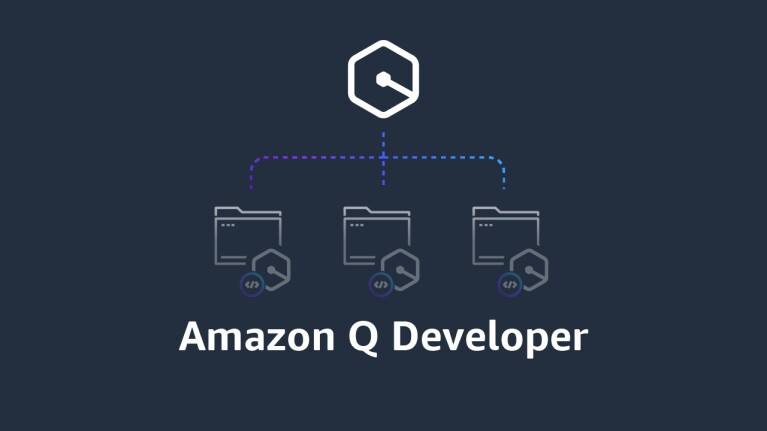
Amazon Q developer is everywhere you need it, and now it's also in SageMaker Studio. The machine learning model development process is complex, and data scientists spend too much time searching for the right tool, documentation, or approaches. To address these challenges while saving considerable time, Amazon Q Developer is now available in SageMaker Studio. From a simple chat experience, users can ask Amazon Q Developer to recommend tools and suggest code for building machine learning models.

Amazon Bedrock is a fully managed service that makes it easy to access high-performing large language models (LLMs) and other foundation models (FMs), the building blocks of generative AI applications, from leading AI companies. But building generative AI applications goes beyond access to FMs. Bedrock also offers a broad set of capabilities necessary to build generative AI applications with security, privacy, and responsible AI.
Today AWS announced a host of new capabilities for Amazon Bedrock, providing customers with the ability to customize models with their own data, and offering more guardrails for generative AI applications.
Highlights include:
Fine-tuning Anthropic Claude 3 Haiku now available in preview
Claude 3 Haiku is Anthropic’s most compact model, and is one of the most affordable and fastest options on the market for its intelligence category according to Anthropic. And Amazon Bedrock is the only fully managed service that provides you with the ability to fine tune Claude models.
Developers want to customize Claude's powerful out-of-the-box capabilities to their specific applications. Fine-tuning tools in Amazon Bedrock enable developers to use their own data to build applications that are specific to their domain, organization, and use case, and reflect their company’s proprietary information, brand, voice, and products. They can also train a private copy of the model while keeping private training data secure.
Updates to Guardrails
No matter how quickly AI applications are built, they must be safe and responsible. Guardrails for Amazon Bedrock allows customers to create safety and privacy protections for their applications. The latest of these tools, contextual grounding checks, enables customers using Retrieval Augmented Generation (RAG) techniques to detect when an AI creates inaccurate or incorrect answers and ideas, known as "hallucinations."
In addition, AWS announced an API that allows customers to use Guardrails across any foundation model—even those not supported by Amazon Bedrock.
Create more advanced, personalized customer experiences with agents
With Agents for Amazon Bedrock, applications can take action, executing multistep tasks using company systems and data sources. Today, new capabilities to Agents for Amazon Bedrock were announced. Agents had been limited to taking action based on information from within a single session. Now, agents can remember where you last left off and provide better recommendations based on prior interactions. For instance, in a flight booking application, a developer can create an agent that can remember the last time you traveled or that you opt for a vegetarian meal.
In New York, AWS announced it is more than a year ahead of schedule in reaching its goal to provide free cloud computing skills training to 29 million people worldwide by 2025. The company said it had already trained more than 31 million learners across 200 countries and territories, building their cloud skills through free training initiatives.
Learn more about these launches and resources:
Trending news and stories
- Amazon unveils 7 new robots powering faster, safer deliveries: Go inside our most innovative delivery station yet
- Introducing Vulcan: Amazon's first robot with a sense of touch
- This new AI tech will make sorting packages easier for Amazon's delivery station employees
- How Amazon helps data center communities thrive









